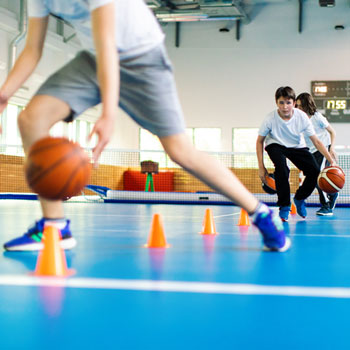Analysis of high quality studies
Do physical activity programs lead to better school performance? With this question, Singh and her colleagues analyzed the results of 58 studies on the effect of physical activity programs on cognitive performance (e.g. attention or working performance) and academic performance (e.g. grades, GAP). The researchers found that only 11 out of 58 studies met the quality requirements for the predicate ‘high quality’.
Positive effect
The researchers found no convincing evidence for a positive effect of physical activity programs on cognitive performance and general academic performance. What they did find was that children who frequently attend physical activity programs at school over a longer period of time, performed better in math tests. The programs where positive effects on children’s math performance was reported ran for approximately 2-3 school years and activities were offered 3-5 times per week.
Slow and steady wins the race
In many other school-based programs that the researchers included, children were less active, and effects were measured after shorter periods of time, e.g. after three months. The researchers advise government, education, research and funding bodies to invest in long term and good quality research on the effects of PA on school performance.
The current attention that is paid to this area of research is encouraging, and reflects the urgency of the need to increase physical activities at school. What is really exciting is the chance to secure a ‘double whammy’: active students are healthier; and also better perform in maths.
SmartMoves!
This study formed part of SmartMoves!, a project coordinated by VUmc. For ‘SMART MOVES!’ a multidisciplinary consortium joined forces in order to develop and evaluate a physical activity programme in order to stimulate cognitive performance. Expermimental and literature studies are combined with the insights of end users and professionals in the field of education and policy in order to develop an effective and feasible intervention.
The results of this study are published in the article ‘Effects of physical activity interventions on cognitive and academic performance in children and adolescents: a novel combination of a systematic review and recommendations from an expert panel’ in the British Journal of Sports Medicine (30 july 2018).








